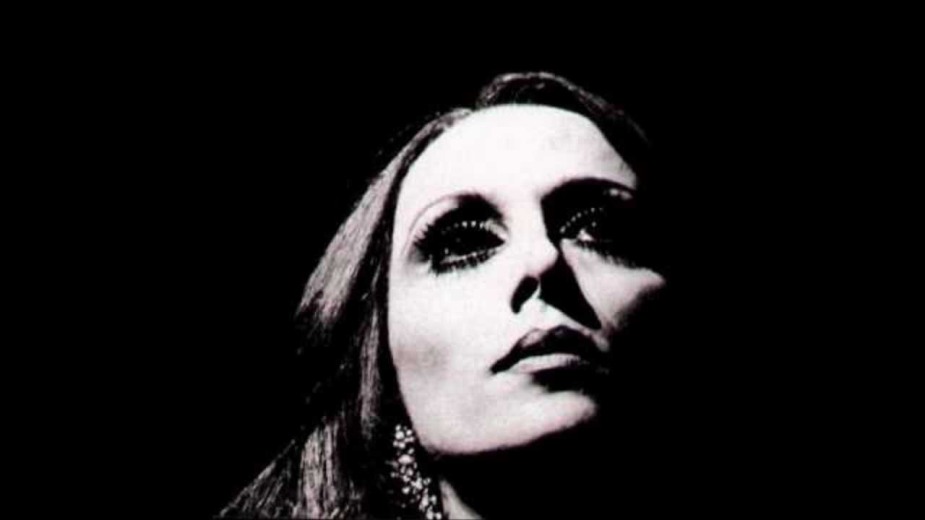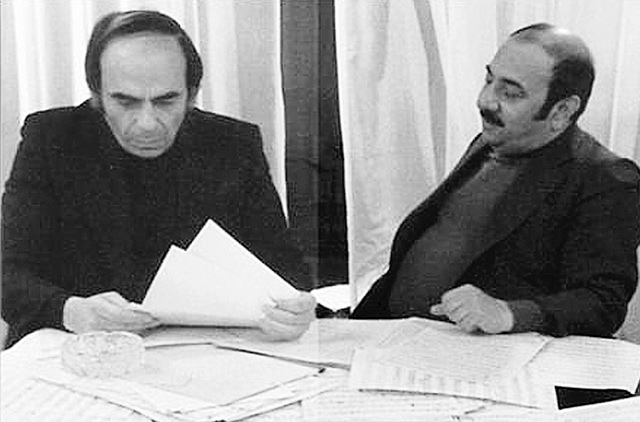That’s not my opinion. That is the opinion of Mohammed Abdel Wahab … the Musician of the Generations … one of the most prominent founders of Arabic Music and composers in its modern history, and singers from the 20th century.
The song Abdel Wahab was speaking about is Shal (Scarf) … sung by Fairouz, words by Said Akl, composed by Rahbani Brothers.
Although it is hard to put a song on such a pedestal, but this song has gathered all the genius of the last century of Arabic composition and musical production. It unites Western and Eastern musical beauties, and combines them with the beauty of the Arabic language, in a beautiful poetic composition as sensual as the notes played in the composition, and as sensitive as the angelic voice singing it.
Abdel Wahab

Abdel Wahab was fundamental in establishing a new Era of Egyptian music in his homeland and across the Arab world. He also left a mark on the Western world by exposing Egyptian music to Western classical and popular traditions. He also composed the Tunisian and Libyan national anthems.
The song Abdel Wahab was speaking about is Shal (Scarf) … sung by Fairouz, words by Said Akl, composed by Rahbani Brothers.
Abdel Wahab composed more than 1820 songs and is considered to be one of the most innovative Arab musicians of all time, laying the foundation for a new era of Arabic music with his use of non-local rhythms and refined oud playing. He composed some of the best hits of Nagat El Saghira including four poems by Nizar Qabbani.
Abdel Wahab played oud before the prominent Egyptian poet, Ahmed Shawqi, and acted in several movies. He composed ten songs for Umm Kulthum. He was the first Egyptian singer to move from silent-era acting to singing.
So I would take him as an authority in this subject, and I take his opinion as fact.
Sung by Fairouz

Fairouz is the Arab world’s most famous and most listened-to singer. For decades, almost all radio stations in the Arab world have been starting their morning broadcast with a Fairuz song. The Guardian stated that “she sang the story of a Lebanon that never really existed” and “essentially helped build the identity of Lebanon, just 14 years after it became an independent country”.
In 1997, Billboard stated “even after five decades at the top, (Fairuz) remains the supreme Diva of Lebanon”.
In 1999, The New York Times described her as “a living icon without equal” and stated that her emergence as a singer paralleled Lebanon’s transformation from a backwater to the vibrant financial and cultural heart of the Arab world. In a 2008 article, BBC described her as “the legendary Lebanese singer and greatest living Arab diva”.
In an article about world music, The Independent stated “All young female singers in this region seem to be clones of her” and that “she’s such an important artist that you have to get to grips with her”.
Word By Said Akl

Said Akl was a Lebanese poet, philosopher, writer, playwright and language reformer. He was considered one of the most important modern Lebanese poets. Although he was a gifted Arabist, producing some of the masterpieces of modern Arabic belle lettres in Standard Classical Arabic, his most exquisite works remained in his “native language,” in what he referred to as the “Lebanese language.” His writings include poetry and prose both in Lebanese dialect and in classical Arabic language. He has also written theater pieces and authored lyrics for many popular songs.
Rahbani Brothers

Rahbani Brothers were Lebanese composers, musicians, songwriters, authors, playwrights/dramatists. They are best known for their work with Lebanese singer Fairuz.
The Rahbani Brothers are widely credited for creating the Arab world’s own version of Broadway, as they created one of the most famous theater companies, which paved the way for many performers and musicians. With Assi being married to Fairouz, the couple collaborated to produce some of the most iconic musicals, and solo pieces in the history of Arabic music.
Lyrics Translated by Wissam Charafeddine
مُرخىً على الشعر شالْ
لرندلى
هلا هلا
به بها بالجمالْ
من يا حَبابَ الكؤوسْ
من جمّلك
من فصلّك
حلواً كحلم العروسْ
لم ثِنْيَةٌ تشتكي
ثم تغيبْ
هِمْ يا حبيبْ
بلونِيَ الليلكي
هِمْ لا تُقَرِّبْ يَدَا
هِمْ بالنظرْ
أبقى الأثرْ
ما لم يزل مُوصدا
يا طِيبَ شالٍ تُلَمّْ
عنه النجومْ
وبي همومْ
لأن يُرى أو يُشَمّْ
قُيّضَ لي موعدُ
في ظلِّ شالْ
تُرى الخيالْ
سُكْنَى ومُسْتَنْجَدُ
ما لي سألتُ الزهَرْ
عن منزلي
فقيل لي
هناك خلف القمرْ
Loose upon hair
a shawl
To Rendley
Welcome
Welcome!
Welcome its beauty
Welcome her Beauty
Welcome the Beauty!
Whomever,
oh lover of chalices,
beautified you?
Who designed you?
Who detailed you?
sweet as a bride’s dream!
…
Why would a curve complain
then disappear?!
Daydream oh sweatheart!
in my color of lilac,
daydream,
don’t draw a hand,
just daydream with
your eyes,
the lingering
of rejection.
…
Oh how sweet is
a shawl from which
stars are collected.
and I am full of concern
for it to be seen
or smelled.
Listen to the Song
Enjoy:


[…] hasn’t had an active philharmonic orchestra, and there are no ballet or opera performances. Poetic Islamic music and popular Arabic songs are beautiful. The five best known Arabic instruments are the tomtom, oud, […]
LikeLiked by 1 person